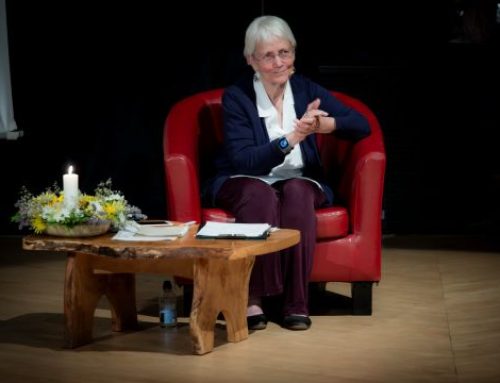These have come from many sources over the years. Indeed, some have been with us for so long that we now think of them as our own. Attunement, for example, was first brought to us by the Universal Foundation who had a close contact with the emerging Community in the 1960s and 70s. Likewise, the idea of focalisation was brought here in the early 70s from ‘Sunrise Ranch’, an Emissaries centre in the USA.
Later in that decade co-counselling, or re-evaluation counselling, became very popular with Community members. From the eighties onwards strong links with the psychosynthesis movement were formed which continue to this day, Several Foundation members have gone on to become teachers or counsellors of this system, and accreditation courses are sometimes run run here in cooperation with the Psychosynthesis Trust in London. Gestalt has also been influential, partly due to our exchange programme with the Esalen Institute in California.
Other impulses have come and gone in a blaze of short lived intensity and excitement. Examples of this would be EST, DMA, and Robert Hargrove’s ‘Next Step’ workshop, each of these techniques having added something vital that our collective consciousness soaked up and can (presumably) call upon again. A similar process seems to occur with certain artistic events. There are occasions when one can almost see the angel which overlights us hovering above performers in the Universal Hall and assimilating the offerings on show. Perhaps the most powerful example of late was the East/West concert that formed part of the ‘Individual and Collective’ conference in 1988. The nature of our being is synthesising – opening up to new experiments, and then letting them go after they have enriched the field.
The arts and such conferences have had other important effects. Our conferences draw on a wide variety of contributors, many of then coming here for the first time. The qualities explored by the conference often seem to form part of our resident members living education curriculum willy-nilly, and they always provide an important seed point for further exploration and development of ideas and practices.
Another important gift from the arts has been the contribution of the Actors’ Institute, who have brought several workshops here, of which ‘The Mastery’ has been the most popular. Although not a spiritual programme as such, the enduring value and appeal of this weekend event is quite remarkable. It has certainly been the most influential of all outside workshops to come here, and Ike and Maggie Isaksen who first brought it here deserve great credit for doing so and for supporting it over the years.
There is no point in attempting to summarise the content or purpose of this gem of an event here, but one important quality it seeks out is our individual ability to inspire. How often have those who have done this workshop sat in the Hall and listened to a Community member making a clear, intelligent and apposite point in a dull monotone and thought “The Mastery, the Mastery!”?
A more recent contributor to our collective knowledge is Process Oriented Psychology, or POP, which is based on the work of Arnold Mindell, and was first brought here by Max Schuepbach. A word of explanation about the name of this work is in order. In our jargon someone ‘in process’ is certainly someone who is not happy, and probably someone whose work is suffering because of it. In POP terms the idea is not necessarily to go ‘into process’ but rather to ‘follow a process’ i.e. to take on board and go deeper into a subject which has emerged from the field of our collective psyche, even if appears to be random, tangential or dissonant. It is early days yet, but POP appears ideally suited to our culture and may be with us for a long time.
A word about the relationship of psychology to spirituality may be in order here as at present one often hears comments in the Community about the value of these different approaches. First of all it must be said that the distinction is not one that is particularly clear cut. If you have a problem in your life a sociologist may begin by asking about your relationship to family and friends, a psychologist may probe for deeper insights about the nature of your relationship to parents, or the birth process, whilst a spiritual healer will attempt to dialogue with your soul, but these are only starting points.
As a spiritual community we should of course always be emphasising the importance of spirit, spirituality, the soul’s nature and purpose, and our relationship to God, but that is quite different from denying the value inputs from other disciplines with ethical standards congruent to our own can have, or taking the view that psychological techniques do not have a place here.
A current example of this problem confronts us in the shape of Holotropic Breathwork. Stanislav Grof, the originator of this form of therapy, is adamant that it is a spiritual technique with an ancient shamanistic lineage. To its detractors it is a practice which induces potentially dangerous psychological states. Legal difficulties make the future of breathwork in the Community difficult to assess, but its positive impact on the lives of many individuals here has already been considerable.
Whatever the answer to this particular conundrum, one thing all of these techniques have in common is that they emphasise the value of consciousness rather than psychic development. We do of course train ourselves in the use of the intuitive faculties, and the development of spiritual sensitivity has always had an important place here, but our view is that the augmentation of such gifts is of little value if it is not attended by a concomitant strengthening of the soul’s connection with the personality and a growth in all-round awareness and sensitivity.
Two final items should be added to our list, neither of then truly external influences. The Game of Transformation was developed here by Joy Drake, Kathy Tyler and Mary Inglis, although its main base is now in Washington State, USA, where the first two individuals now reside. Much of the Game’s cosmology has passed into Community life, and its overall impact on us is incalculable. For example it is clear from some Core Group selection procedures that qualification as a ‘Game Guide’ is considered by many people (rightly or wrongly) to be an affirmation of spiritual integrity.
Last but not least we should mention the existence of the ‘Fellows’ group. Initiated by Vita de Waal and Roger Doudna in 1984 there are now over fifty fellows, (both male and female as it should be thought of as genderless term borrowed from academia), who we recognise as carrying out valuable activity on the world stage and who have also made contributions to our own work – often for example appearing as speakers at conferences. The list of fellows is illustrious, and although we have not always managed to find ways to fully utilise their talents and offers of help, few doubt that the group will continue to make an important impact on our educational programmes.
Reading list
Roberto Assagioli; The Act of Will; Penguin; 1973. One of several important books by the founder of psychosynthesis.
Deepak Chopra; Return of the Rishi; Houghton Mifflin; 1991
Robert Fritz; The Path of Least Resistance; Ballantine; 1984
Stanislav Grof; Beyond the Brain: Birth, Death and Transcendence in Psychotherapy; State University of New York Press; 1985
Harvey Jackins; The Upward Trend; Rational Island; 1978. A collection of essays on re-evaluation counseling.
Michael Lindfield; The Dance of Change; Arkana: 1986;
Findhorn: A Learning Experience; unpublished Foundation document; 1984/5
Arnold Mindell; Working On Yourself Alone; Arkana; 1990
The Shaman’s Way; Harper Collins; 1993
Fredrick S. Perls; Morality, Ego Boundary and Aggression; in Esalen Is; ed. J. O. Stevens; Real People Press; 1975. Fritz Perls was the founder of gestalt practice in the Esalen community.
Ken Wilber; Grace and Grit: Spirituality and Healing in the Life and Death of Treya Killam Wilber; Shambhala; 1993. Treya was a member of the Foundation and this is a moving account of her battle with illness. Wilber is also at pains to distinguish between ‘pre-rationals’ (who apparently make up 80% of new age adherents) from ‘trans-rationals’ (such as himself).












Leave A Comment